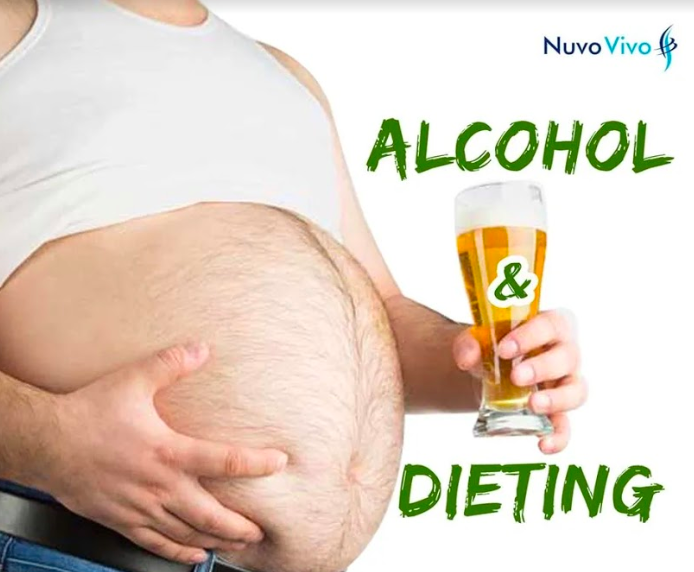Alcohol contains roughly 7 calories per gram (less than fat, but more than protein or carbs). There are 3 types of Alcohol – isopropyl, methyl, and ethyl, of which Ethyl (grain) alcohol can be consumed by humans. The other 2 are used as sterilizing agent or as fuels.
Body considers (ethyl) alcohol🍾 as a toxin. Our body cannot store alcohol unlike protein, fat or carbs. Hence, its immediate response is to expel alcohol from the system. Thus our body keeps aside all other food we consumed and starts to metabolise alcohol. Alcohol however has a higher metabolic rate (high thermic effect) which means, our body spends a lot of calories to metabolise alcohol, as compared to protein, fat or carbs.
It is possible to have alcohol in limited quantities (enjoy a social life) and still become healthy with the help of a structured nutrition and exerciseplan. However, long-term alcohol intake increases the risk for fatty liver and other liver diseases (remember – liver is the detox organ in our body that detoxes the alcohol).
Excess alcohol can increase the total calorie intake there by contributing to weight gain. It also causes damage to internal organs and can cause immediate bloating of the body. It can also affect the digestion and absorption of food in the gut and impair sleep. The sugary/carbonated drinks and high calorie food that is often had along with alcohol also contributes to a massive calorie intake, causing more damage.
Being sensible is what is needed to enjoy a social life, yet manage and reach your fitness goals.

